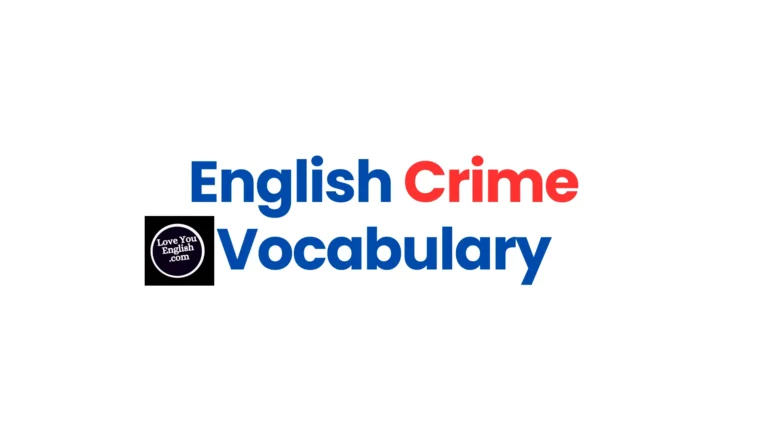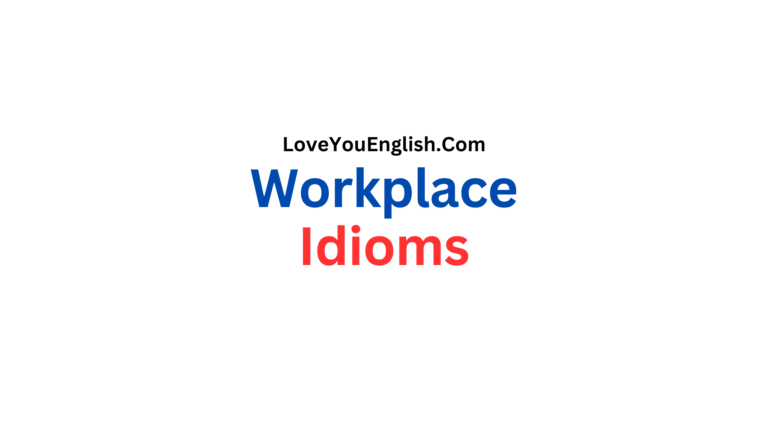100 American Slang Words & Phrases with Examples
Ever found yourself watching an American movie and wondering what on earth the characters are talking about? You’re not alone!
American slang can be confusing, colorful, and downright fun once you understand it.
Let’s dive into 100 essential American slang terms that will have you sounding like a local in no time.
Everyday Expressions
- Ace – To perform exceptionally well “I totally aced that test yesterday!”
- Bail – To leave abruptly “This party is boring. Let’s bail.”
- Beat – Exhausted “I’m beat after that long hike.”
- Bounce – To leave “It’s getting late, I’m gonna bounce.”
- Busted – Caught doing something wrong “He got busted for speeding on the highway.”
- Chill – Relax or calm down “Just chill, we’ll figure this out.”
- Crash – To sleep at someone’s place “Can I crash at your place tonight?”
- Creep – Someone acting strange or suspicious “That guy following us is such a creep.”
- Diss – To disrespect someone “Did you hear how he dissed his teacher?”
- Down – Ready or willing to do something “Are you down for pizza tonight?”
Money Talk
- Bucks – Dollars “That shirt costs fifty bucks.”
- Loaded – Very wealthy “Her family is loaded, they own three houses.”
- Broke – Having no money “I’m broke until payday.”
- Fork over – To pay reluctantly “I had to fork over $300 for car repairs.”
- Grand – One thousand dollars “The new laptop costs two grand.”
- Stingy – Unwilling to spend money “Don’t be stingy, buy a round of drinks!”
- Splurge – To spend money freely “I’m going to splurge on a nice dinner tonight.”
- Filthy rich – Extremely wealthy “The neighbors who just moved in are filthy rich.”
- Strapped – Short on money “I’m a bit strapped this month, can we go somewhere cheaper?”
- Chip in – To contribute money “Everyone needs to chip in for the gift.”
Food & Drink
- Grub – Food “Let’s go get some grub, I’m starving.”
- Pig out – To eat excessively “We pigged out at the buffet.”
- Munchies – Desire to snack “I’ve got the munchies, do we have any chips?”
- Juice – Power or influence; also alcohol “He’s got the juice to get us into the club.”
- Bombed – Very drunk “He got bombed at the party last night.”
- Buzzed – Slightly drunk “After two beers, I was feeling buzzed.”
- Chow down – To eat “Let’s chow down before the movie starts.”
- Grab a bite – To get food “Want to grab a bite after work?”
- Sweet tooth – Craving for sweets “I have such a sweet tooth, I can’t resist chocolate.”
- Booze – Alcoholic drinks “They brought plenty of booze to the party.”
People & Relationships
- Bae – Term of endearment for romantic partner “Just hanging out with my bae tonight.”
- Bestie – Best friend “She’s been my bestie since kindergarten.”
- Bro – Close male friend “What’s up, bro? Long time no see!”
- Crush – Person you’re attracted to “I’ve had a crush on him for months.”
- Flake – Unreliable person “Don’t invite him, he’s such a flake.”
- Ghosted – When someone stops responding to messages “We went on one date and then she ghosted me.”
- Homie – Close friend “These are my homies from college.”
- Hottie – Attractive person “Did you see that hottie by the pool?”
- Squad – Group of friends “The whole squad is coming to the concert.”
- Third wheel – Unwanted person with a couple “I felt like a third wheel on their date night.”
Work & School
- All-nighter – Staying up all night to work/study “I pulled an all-nighter to finish my paper.”
- Blow off – To skip or ignore “He blew off his afternoon classes.”
- Boss – Great or excellent (adjective) “That new restaurant is totally boss.”
- Cram – To study intensely before an exam “I need to cram for tomorrow’s test.”
- Grind – Working hard consistently “The daily grind is wearing me out.”
- Knock it out of the park – To do exceptionally well “She knocked it out of the park with her presentation.”
- Pop quiz – Surprise test “The teacher gave us a pop quiz today.”
- Slack off – To be lazy or avoid work “Don’t slack off, we need to finish this project.”
- Swamped – Very busy “Sorry I can’t help, I’m swamped with work.”
- Zone out – To lose focus “I zoned out during the boring lecture.”
Emotions & Reactions
- Bummed – Disappointed or sad “I’m really bummed about missing the concert.”
- Hyped – Very excited “Everyone’s hyped for the new movie release.”
- Psyched – Enthusiastic “I’m so psyched about our trip next week!”
- Salty – Bitter or upset “Don’t be salty just because you lost the game.”
- Shook – Shocked or surprised “I was shook when I heard the news.”
- Stoked – Very excited “I’m stoked about the surprise party!”
- Triggered – Upset by something that reminds of past trauma “That movie scene triggered some bad memories.”
- Vibe – Atmosphere or feeling “I’m not feeling the vibe at this club.”
- Wired – Energetic, unable to relax “I had too much coffee and now I’m wired.”
- Hyped up – Very excited or energized “The crowd was hyped up for the concert.”
Technology & Social Media
- Catfish – Someone using a fake identity online “He thought he was talking to a model, but he got catfished.”
- Doomscrolling – Continuously scrolling through bad news “I spent the whole night doomscrolling through news sites.”
- FOMO – Fear Of Missing Out “I went to the party because I had FOMO.”
- Left on read – When someone reads but doesn’t reply to messages “She left me on read after my last text.”
- Selfie – Self-portrait photograph “Let’s take a selfie with the sunset.”
- Slide into DMs – To initiate a private conversation online “He slid into my DMs after seeing my post.”
- Spam – To send too many messages “Stop spamming the group chat!”
- Troll – Someone who posts inflammatory comments “Don’t feed the trolls in the comment section.”
- Viral – Content that spreads rapidly online “Her dance video went viral overnight.”
- Unplug – To disconnect from digital devices “I’m going to unplug this weekend and enjoy nature.”
Descriptions & Qualities
- Awesome – Excellent or impressive “That concert was totally awesome!”
- Dope – Cool or excellent “Those are some dope sneakers.”
- Extra – Over the top, excessive “She’s being so extra about her birthday party.”
- Fire – Amazing or hot “His new album is straight fire.”
- Legit – Genuine or cool “This restaurant is legit the best in town.”
- Lit – Exciting or excellent “The party was lit last night.”
- On point – Perfect or well-executed “Your makeup is on point today.”
- Sick – Impressive or cool “Did you see that sick skateboard trick?”
- Sketch – Suspicious or dubious “That guy seems sketch, let’s avoid him.”
- Wack – Strange or bad “The movie had a wack ending.”
Actions & Situations
- Bail out – To rescue from trouble “My parents had to bail me out when my car broke down.”
- Call it a day – To stop working “It’s getting late, let’s call it a day.”
- Chill out – To relax or calm down “Chill out, it’s not that serious.”
- Crash and burn – To fail spectacularly “His presentation crashed and burned.”
- Hit the road – To leave “It’s time to hit the road if we want to beat traffic.”
- Hang out – To spend time with friends “We’re hanging out at Mike’s place tonight.”
- Mess up – To make a mistake “Sorry I messed up your order.”
- Spill the tea – To share gossip “Come on, spill the tea about your date!”
- Take a rain check – To postpone “Can I take a rain check on dinner tonight?”
- Hit the hay – To go to bed “I’m tired, I’m going to hit the hay.”
Phrases with Multiple Meanings
- Break a leg – Good luck “Break a leg at your audition tomorrow!”
- Catch you later – Goodbye “I’ve got to run, catch you later!”
- Cut it out – Stop doing something “Cut it out, you’re annoying everyone.”
- Get it – To understand; also to obtain something “Do you get it now?” or “I’ll get it for you.”
- Give me a break – Stop bothering me; also expressing disbelief “Give me a break, I just sat down!” or “You won the lottery? Give me a break!”
- Hit me up – Contact me “Hit me up when you’re in town.”
- My bad – My mistake “My bad, I forgot to call you.”
- What’s up – Hello, how are you “What’s up, man? Haven’t seen you in ages!”
- You bet – Yes, certainly “Can you help me move?” “You bet!”
- No worries – It’s okay, don’t worry about it “Sorry I’m late.” “No worries, we just started.”
American slang is constantly evolving, with new terms emerging while others fade away.
Learning these expressions not only helps you understand American TV shows and movies better but also helps you communicate more naturally with Americans.
Remember that slang usage varies across different regions of the US and among different age groups, so context matters!
What’s your favorite American slang term from this list? Are there any you’re already using in your daily conversations?
More topics:
- Weekend Chores – A Natural Conversation Between Two Friends
- English Dialogue: Talking About New Year’s Resolutions
- English Conversation About A Day Without the Internet
- An English Conversation at a Bus Stop
- English Dialogue: Helping a Tourist Find Directions








